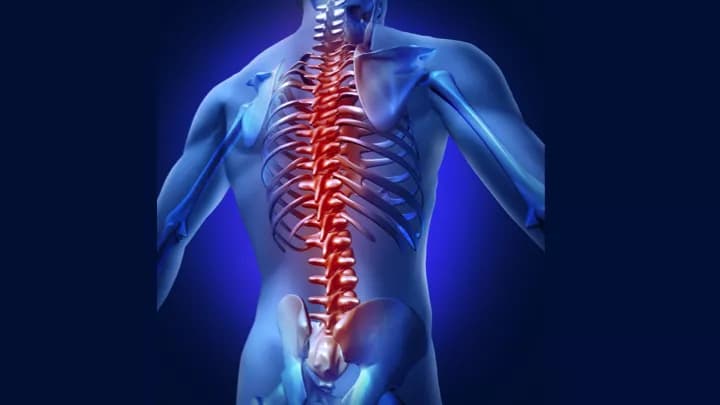
Chronic Low Back Pain Linked To Higher Rates Of Illicit Drug Use
People living with chronic low back pain (cLBP) are more likely to use illicit drugs -- including marijuana, cocaine, heroin, and methamphetamine -- compared to those without back pain, reports a study in Spine, published by Wolters Kluwer.
In addition, cLBP patients with a history of illicit drug use are more likely to have a current prescription for opioid analgesic (pain-relieving) drugs, according to the new research by Dr. Anna Shmagel of University of Minnesota, Minneapolis, and colleagues. While it's not clear which direction the association runs, the patterns of illicit drug use may have implications for decisions about prescribing opioids for patients with back pain.
Higher Illicit Drug Use by Patients with cLBP...With Link to Current Opioid Use
The researchers analyzed survey responses from more than 5,000 US adults (aged 20 to 69) from a nationally representative health study (the 2009-2010 National Health and Nutrition Examination Survey, or NHANES).
About 13 percent of respondents met the study definition of cLBP -- back pain present for three months or longer. The confidential survey also asked participants about their use of illicit drugs -- marijuana, cocaine, heroin, and methamphetamine.
The results suggested that back pain was linked to higher rates of illicit drug use. About 49 percent of adults with cLBP said they had ever used illicit drugs, compared to 43 percent of those without cLBP. Rates of current illicit drug use (within the past 30 days) were also higher in the cLBP group: 14 percent versus nine percent.
All four specific drugs in the survey were more commonly used by respondents with cLBP. Rates of lifetime use were about 46.5 versus 42 percent for marijuana, 22 versus 14 percent for cocaine, nine versus five percent for methamphetamine, and five versus two percent for heroin. After adjustment for other factors, participants with cLBP were more than twice as likely to report methamphetamine and heroin use.
The results also suggested a link between illicit drugs and prescription opioids among patients with cLBP. Subjects who had ever used illicit drugs were more likely to have an active prescription for opioid analgesics: 22.5 percent versus 15 percent. Current illicit drug users were also more likely to have an opioid prescription, although that difference was not statistically significant.
Prescription opioids are widely used by patients with cLBP, raising concerns about addiction, misuse, and accidental overdose. Previous studies have found that people with a history of illicit drug use are more likely to misuse prescription opioids. The new study is one of the first to focus on rates of illicit drug use among Americans with cLBP.
The nationwide data show that people with cLBP have higher rates of illicit drug use, and those with a past history of illicit drug use are more likely to be current users of opioid analgesics. The researchers note some important limitations of their study--including a lack of data on whether illicit drug use occurred before or after cLBP. They also suggest that the true scope of the problem may be even greater, since NHANES excludes some groups at high risk of illicit drug use.
Pending further research, doctors may want to consider theses associations when evaluating pain relief options for patients with cLBP, Dr. Shmagel and coauthors believe. They write, "As we face a prescription opioid addiction epidemic, careful assessment of illicit drug use history may aid prescribing decisions."
The above post is reprinted from materials provided by Wolters Kluwer Health. Note: Content may be edited for style and length.
Disclaimer: DoveMed is not responsible for the adapted accuracy of news releases posted to DoveMed by contributing universities and institutions.
Primary Resource:
Shmagel, A., Krebs, E., Ensrud, K., & Foley, R. (2016). Illicit Substance Use in US Adults With Chronic Low Back Pain. Spine.
Related Articles
Test Your Knowledge
Asked by users
Related Centers
Related Specialties
Related Physicians
Related Procedures
Related Resources
Join DoveHubs
and connect with fellow professionals

0 Comments
Please log in to post a comment.